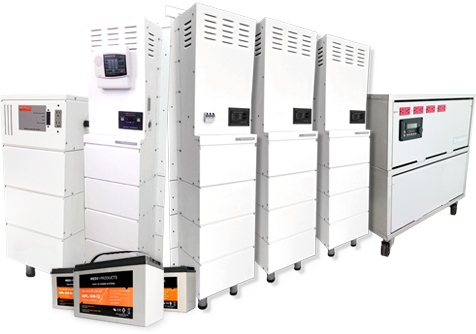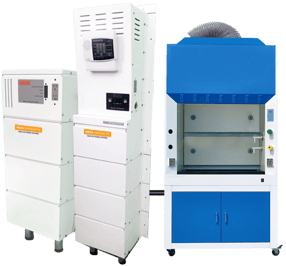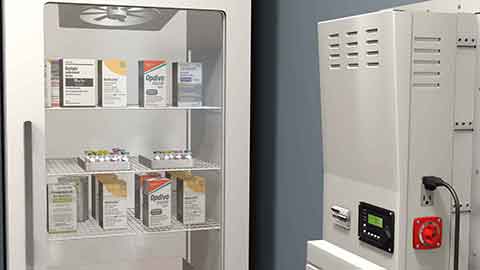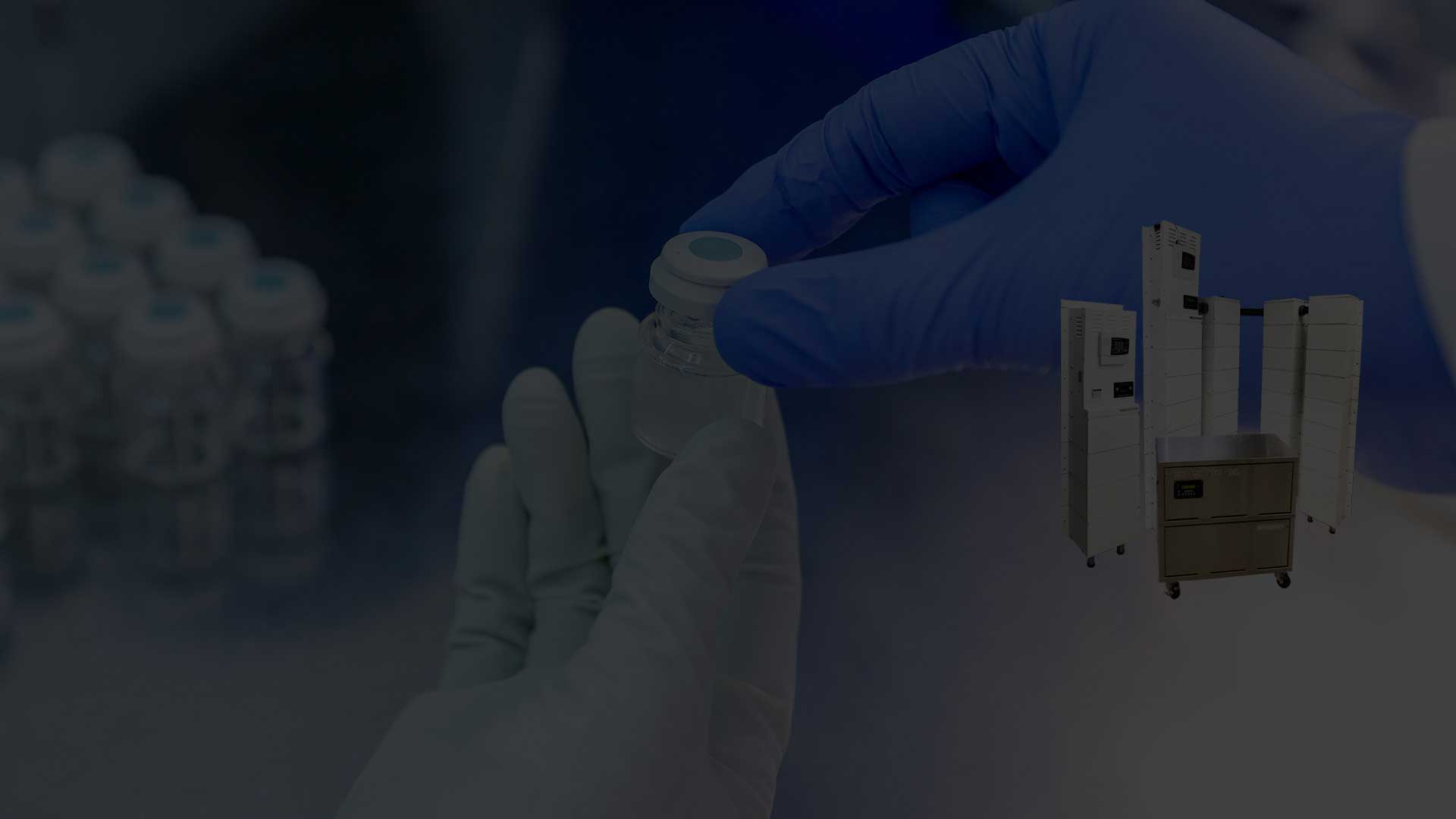When It Comes to Emergency Power In Medical Facilities, What Factors Influence the Choice Between Battery Backup and Generators?
In case you missed it, catch up on the previous entries in our series detailing the design and operation of Healthcare facilities and why backup power is crucial for modern and fully-optimized operations.
In healthcare architecture and electrical engineering, it's vital to have uninterrupted power during emergencies. Imagine a busy hospital where lives are at stake. A sudden power outage puts vital medical equipment, medicines, and research samples in danger. The decision to choose between battery backup and gas generators becomes a pivotal to safeguarding patients and protecting valuable inventory.
This article looks at what influences this important choice and how backup power solutions are important in healthcare facilities.
Understanding the Importance of Backup Power in Healthcare Facilities
In healthcare facilities, every moment counts. Thus, the need for a continuous and reliable power supply cannot be overstated. There are many reasons for power outages, like storms or problems with the electrical system. In times like these, medical equipment needs constant power to care for patients.
Ventilators, dialysis machines, and life-saving monitors all rely on it. Furthermore, medicines, vaccines, and biological samples need specific storage conditions to stay effective . An uninterruptible power ensures that these biomedical materials remain protected automatically. So, healthcare professionals can focus on their main goal: giving the best care to patients.
Battery Backup vs. Generators
When it comes to emergency power, two contenders vie for the top spot. Namely, battery backup systems and gas-powered generators. Both solutions have their strengths, and the choice between them depends on several crucial factors. Let's examine the key considerations that influence this decision:
Response Time and Runtime
Battery backup systems are known for their ability to engage within milliseconds. Kicking into action almost instantly when the main power source fails, they ensure no interruptions in power supply.
 Plus, with advances in battery technology their runtime are far longer than you may think. While many believe they are limited to a few minutes or hours, modern systems can handle loads for days.
Plus, with advances in battery technology their runtime are far longer than you may think. While many believe they are limited to a few minutes or hours, modern systems can handle loads for days.
Learn more about how long battery backup can power your appliances here.
On the other hand, gas-powered generators still generally offer more extended runtime capabilities.
However, this does come with more complications. First they'll need fuel like diesel, natural gas, or propane. Additionally, they often need up to 15 minutes to start and stabilize their full power delivery. This could make them a non-starter for backing up mission critical equipment.
A combination of both generators can theoretically give instant and stable backup power for a long time. This is because, each generator covers the weakness of the other. Making a hybrid solution ideal for facilities expecting regular prolonged outages.
Let Us Assist You With Your Backup Power Needs!
Space and Mobility
Healthcare facilities often struggle to find room for backup power solutions due to space constraints. Battery backup systems are very compact and scalable. This, in turn, makes them suitable for facilities with limited space—like office based practices. They can also be installed directly next to the appliance, or on the other side of the building. This shows their superior flexibility for facilities in an urban setting.
Generators, on the other hand, require more significant physical space and fixed installations. These generators are best for bigger, remote buildings or those with high power demands. They can power the whole building or important departments.
Environmental Impact and Noise
Environmental considerations play an essential role in today's world. By their nature healthcare facilities have striven to be eco-friendly community members .
Battery backup systems, have significantly lower environmental impact. They achieve this by producing no emissions or noise during operation. This makes battery the greener and more livable power source.
Generators, conversely, run on fuel and emit exhaust. As a result, they're significantly louder and far less environmentally friendly. Similar to a car or truck they release greenhouse gases and NOX as a byproduct of generating electricity.
So, measures must are taken to minimize noise levels and ensure proper ventilation to mitigate potential hazards. However, there is no way no completely eliminate these drawbacks.
Maintenance and Reliability
Battery backup systems and generators need regular maintenance to stay reliable in emergencies. However the frequency and expense of the maintenance differs wildly. Battery systems generally only need battery replacements as they feature no moving parts to break. Meanwhile while generators run on engines similar to a cars. So, this means periodic checks, fuel management, oil changes and engine maintenance will be needed.
Regardless, regular testing and inspection are important for both solutions to find and fix problems early.
Drop us a message for more information about our products
Customizing the Solution for Optimal Performance
Choosing the best backup power for a hospital involves first carefully assessing your needs. Consider the following tips to tailor the solution for optimal performance:
Load Analysis
Conduct a comprehensive load analysis to determine the critical equipment and areas that require backup power. This analysis will help in sizing both battery backup systems and generators accurately.
Hybrid Solutions
In some cases, a hybrid approach that combines both battery backup and generators might be the most practical solution. This combination ensures immediate response with battery systems and long-term runtime with generators.
Redundancy and Scalability
Implement redundancy by employing multiple battery backup systems or generators to avoid single points of failure. Ensure that the chosen solution can be easily scaled up to meet future power demands as the facility expands.
Automated Switching
Incorporate automatic transfer switches to facilitate seamless transitions between the main power source and backup systems. Automated switching reduces the risk of human error and ensures a smooth transfer of power.
Conclusion
In the high-stakes world of healthcare, reliable emergency power solutions are indispensable. Battery backup systems and generators each bring unique strengths to the table, catering to different facility requirements and needs. By understanding the factors that influence the choice between these backup power options, healthcare architects and electrical engineers can design and implement solutions that guarantee uninterrupted power supply during emergencies.
Healthcare facilities are changing. Choosing the right emergency power solution is crucial. It protects patients, medical equipment, and important materials.
Even better, is that battery generators can be outfitted with as much power as you want
- Overnight
- All day
- Over a weekend

- Or even for a whole week.
So, to protect your facility from tens of thousands of dollars in lost inventory speak to a Medi-Products battery backup expert.
They’ll help design you a system that both meets your power needs and will fit inside your facility—for a much lower cost than what your vaccines are worth.
Designing a system for you is as easy as taking a picture of your appliance’s nameplate, and a photo of the room where it’s in.
Then, you just email both photos to our Product experts, and we’ll provide you with multiple options for backup power protection.
For more information contact: 1.800.7653237
Read the next blog in our series on backup power when designing healthcare facilities here.


